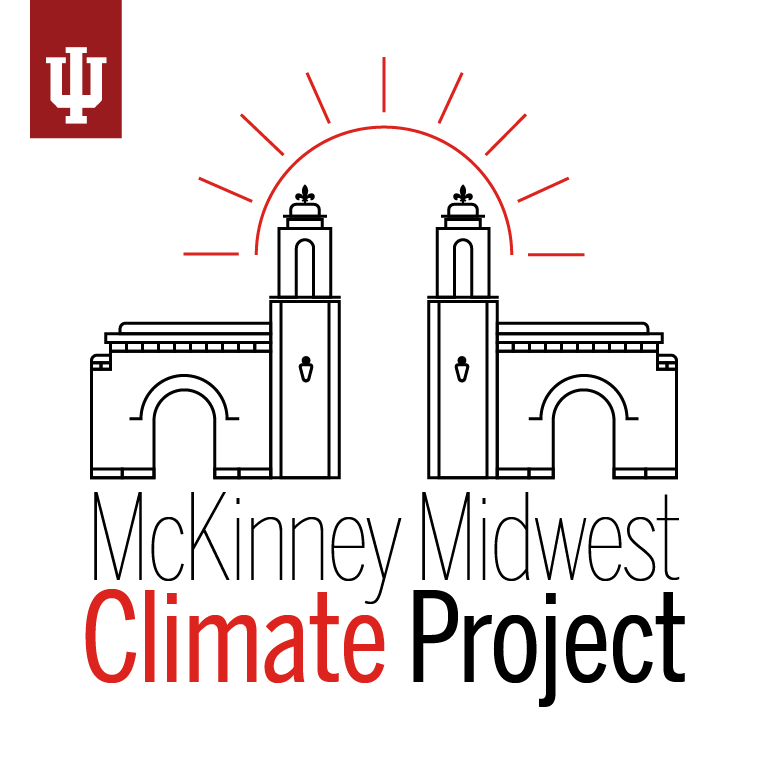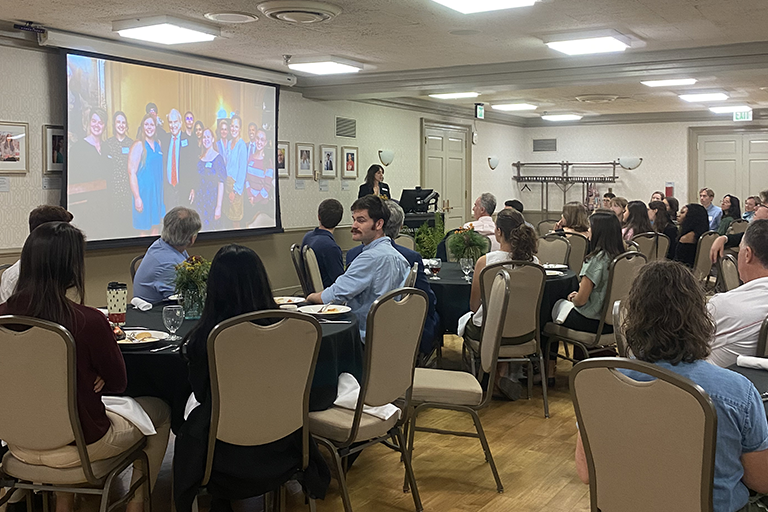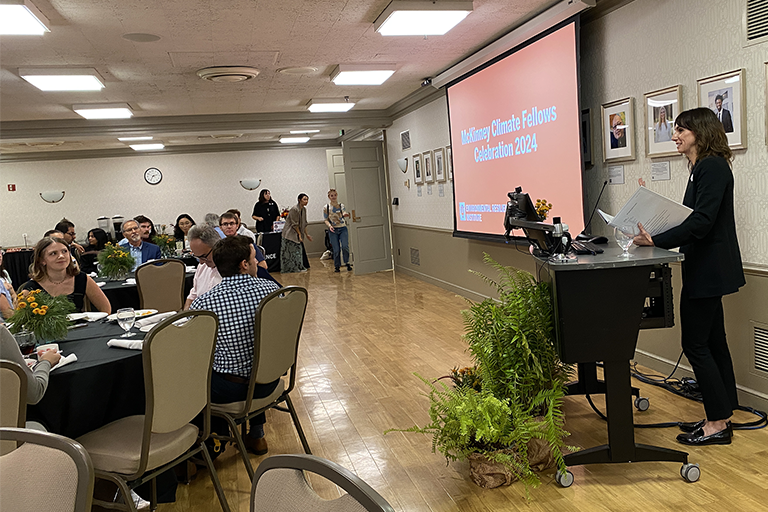If summer is a time of intensive climate action across Indiana for the IU Environmental Resilience Institute’s (ERI’s) McKinney Climate Fellows, then fall is a season of reflection and celebration—at least for one afternoon.
On Oct. 4, current and past participants of the McKinney Climate Fellows program—IU students interested in sustainability and resilience work experiences—gathered at the Indiana Memorial Union with representatives of host organizations, IU Research and ERI staff, and donors to be recognized for their contributions to Indiana’s sustainability and resilience.
The event took place just days after the passing of Bob McKinney, a longtime Indiana environmental champion whose McKinney Family Foundation partnered with ERI in 2021 to launch the McKinney Midwest Climate Project (MMCP), an initiative to empower Indiana-based partners from all sectors to adopt high-impact climate solutions and to train the next generation of climate leaders.
“The students here today, and the 200 others who have been McKinney Climate Fellows since 2017, embody so many of the qualities that Bob and his family wished to cultivate in Indiana’s young leaders,” ERI Managing Director Sarah Mincey said to attendees.
“Bob saw the MMCP as more than just another environmental program. He saw it as a call to action for Hoosiers everywhere, a vision that we can all take inspiration from.”
This summer, 31 fellows heeded that call, contributing to projects supporting the sustainability goals of businesses, nonprofits, and local governments in the state. Examples of work led by fellows include sustainability strategic planning, habitat restoration, and community outreach. Collectively, this year’s fellows contributed more than 12,000 hours to Indiana’s sustainability.
At the event, Braya Benjamin, a sophomore studying environmental science at IU Bloomington, shared her experience working with the Indianapolis Public Library to create a greenhouse gas inventory that quantified emissions associated with the library’s operations and activities. Her report will guide the library, which spans 25 locations and services 280,000 Hoosiers, as it strives to reduce its environmental footprint and become more energy efficient.
“I was fortunate enough to interact with people from all walks of life, from children, to blue-collar workers, to architects, to renewable energy CEOs,” Benjamin said.
“I was able to educate, listen to, and team up with my colleagues and community. I learned so much about the social and environmental influences of our world today, and why it is so important to be a champion for climate action in our lives.”
The organizations who worked with fellows also recognized the value of their contributions. Alex Crowley, director of the Indiana Energy Independence Fund (IEIF) highlighted the efforts of Logan Gunning, a graduate student at the O’Neill School of Public and Environmental Affairs.
Over a two-month span, Gunning helped the newly formed green bank, the first organization of its kind in the state, get up and running by conducting research, developing internal resources, leading social media, writing press releases, and more.
“When Logan first started, I don't think he had any idea what a green bank was,” Crowley said.
“(Today) he is in the thick of it… We are building an organization from scratch… There is no way IEIF would be where it is without Logan's contributions.”
IU Vice President for Research Russ Mumper also spoke to attendees, remarking on the growing legacy of McKinney Climate Fellows, who have collectively contributed nearly 100,000 hours to more than 100 Indiana organizations since the program’s founding.
“That's really remarkable,” Mumper said. “It's a legacy program, and it gives great joy to see the type of impact that ERI, its faculty, students, and fellows are having.”
About the Environmental Resilience Institute
Indiana University’s Environmental Resilience Institute connects a broad coalition of government, business, nonprofit, and community leaders to help Indiana and the Midwest better prepare for the challenges of environmental change. Together, we integrate research, education, and community to create environmental resilience and climate solutions—building a more sustainable, equitable, and prosperous future. Learn more at eri.iu.edu.







